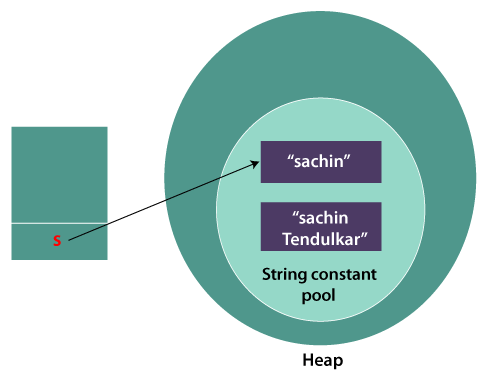Why Are Strings Immutable in Java? Exploring the Layout Decisions
Why Are Strings Immutable in Java? Exploring the Layout Decisions
Blog Article
Unalterable Strings: A Key Component in Ensuring Data Uniformity and Reliability
In the world of information monitoring, the significance of unalterable strings can not be overemphasized. The principle of unalterable strings goes beyond simple technicality; it is a linchpin in the complicated web of data governance.
The Principle of Immutable Strings
Unalterable strings, a basic principle in programs, refer to strings that can not be modified as soon as they are developed. In significance, once a string value is assigned, any kind of operation that shows up to modify the string in fact produces a new string. This immutability makes certain data uniformity and reliability in applications, as it protects against unexpected adjustments to the initial information.
Advantages in Data Consistency

Data uniformity is essential in numerous facets of software application growth, consisting of database management, multi-threaded settings, and dispersed systems (Why are strings immutable in Java?). Immutable strings contribute considerably to accomplishing this uniformity by stopping data corruption as a result of simultaneous accessibility. In situations where several procedures or strings connect with the very same information simultaneously, immutable strings serve as a safeguard against race conditions and synchronization problems
Furthermore, the immutability of strings simplifies debugging and screening procedures. With immutable strings, designers can trust that when a string is established, it will stay unmodified, making it much easier to trace the resource of mistakes and making certain that test instances produce consistent outcomes. This integrity in information taking care of eventually leads to a lot more durable and stable applications.

Implementing Immutable Strings
Ensuring the immutability of strings needs a thoughtful strategy to their implementation in software growth. One key approach is to make string classes in a way that prevents adjustments once a string object is developed. By making strings unalterable, developers can improve information uniformity and dependability in their applications.
To implement unalterable strings effectively, developers ought to prefer producing new string things instead of customizing existing ones. This method makes certain that as soon as a string is designated a worth, it can not be altered. Additionally, any type of procedure that shows up to customize the string should develop a new string with the wanted changes as opposed to modifying the initial.
In addition, utilizing unalterable strings can simplify concurrency monitoring in multi-threaded environments. Given that immutable strings can not be changed after production, they can be safely shared amongst several threads without the danger of information corruption.
Function in Integrity Guarantee
In software program growth, the utilization of immutable strings plays an important duty in making sure the reliability of information operations. Immutable strings, as soon as produced, can not be modified, making certain that the data they stand for stays regular throughout the application's execution. This immutability property offers a degree of guarantee that the data being processed will not be accidentally transformed, resulting in unforeseen outcomes or errors in the system.
By including unalterable strings right into software layout, programmers can boost the dependability of their applications by reducing the threats related to mutable information - Why are strings immutable in Java?. Unalterable strings assist in preventing data corruption Read More Here or unplanned alterations, which can be especially vital when handling sensitive details or when data honesty is critical
Furthermore, the use of immutable strings simplifies simultaneous processing, as numerous threads can safely gain access to and share string data without the danger of one thread modifying the material while another is reading it. This facet contributes considerably to the total dependability of the software system, ensuring predictable and regular behavior in data dealing with operations.
Applications and System Combination
The seamless combination of unalterable strings into various applications and systems is pivotal for making sure durable data consistency and reliability throughout varied technological atmospheres - Why are strings immutable in Java?. Unalterable strings play an important duty in improving the integrity of data exchanges and interactions within facility software communities. By including unalterable strings into applications, designers can mitigate the risks related to information tampering, unapproved adjustments, and unintended changes, thus strengthening the total protection position of the system
In the context of system assimilation, immutable strings act as a fundamental component for establishing safe and secure communication channels and promoting smooth data transfers in between various elements. Their unalterable nature ensures find more that data transferred between systems stays verifiable and unchanged, minimizing the chance of inconsistencies or errors that can compromise the honesty of the whole system. In addition, immutable strings can improve interoperability in between diverse systems by supplying a standardized format for information depiction, making it possible for much more effective data processing and exchange protocols throughout interconnected systems. By taking on immutable strings in applications and system assimilation procedures, companies can strengthen their data framework and promote the integrity and consistency of their info assets.
Conclusion
In final thought, immutable strings play an important duty in maintaining information consistency and reliability in various applications and system assimilations. By making sure that strings can not be altered as soon as produced, the honesty of data is preserved, lowering the risk of incongruities and errors. Applying immutable strings can significantly boost the dependability of systems, inevitably resulting in more dependable and exact information processing.

Report this page